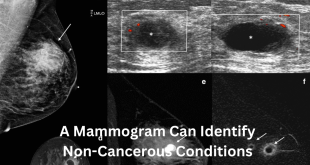Introduction
Indore, a thriving city in the heart of India, has seen significant advancements in medical sciences over the past few decades. One of the areas that have experienced notable progress is hair transplantation. As more people seek solutions for hair loss, the demand for skilled hair transplant doctors in Indore has risen. This article delves into the world of hair transplantation, exploring what makes a great hair transplant doctor, the procedures they perform, and what patients should consider when seeking treatment in Indore.
Understanding Hair Transplantation
Hair transplantation is a surgical procedure that involves moving hair follicles from one part of the body, typically the back or sides of the scalp, to areas experiencing hair loss. This procedure is primarily used to treat male pattern baldness but can also be effective for women experiencing thinning hair or bald spots. The success of a hair transplant largely depends on the skill and experience of the doctor performing the procedure.
Qualities of a Great Hair Transplant Doctor
Choosing the right hair transplant doctor is crucial for achieving the desired results. Several qualities set a great hair transplant doctor apart from others.
- Experience and Expertise: A seasoned hair transplant doctor should have extensive experience performing various types of hair transplant procedures. This includes Follicular Unit Transplantation (FUT) and Follicular Unit Extraction (FUE). Their expertise should be backed by a track record of successful surgeries and satisfied patients.
- Education and Training: A reputable hair transplant doctor should have a solid educational background in dermatology or plastic surgery, supplemented by specialized training in hair restoration. Continuous education and staying updated with the latest advancements in hair transplant techniques are also essential.
- Artistic Ability: Hair transplantation is not just a medical procedure; it is also an art. A great hair transplant doctor should possess an artistic eye to design a natural-looking hairline and ensure that the transplanted hair blends seamlessly with the existing hair.
- Attention to Detail: Precision is key in hair transplantation. A meticulous doctor who pays attention to the smallest details can significantly impact the overall success of the procedure, ensuring minimal scarring and optimal hair growth.
- Patient Communication: A good hair transplant doctor should be able to communicate effectively with their patients. This involves listening to their concerns, explaining the procedure thoroughly, setting realistic expectations, and providing post-operative care instructions.
- Ethical Practices: Ethical standards are crucial in any medical practice. A trustworthy hair transplant doctor should provide honest consultations, avoid over-promising results, and prioritize the well-being of their patients over financial gain.
Hair Transplant Procedures
Hair transplant doctors in Indore are skilled in various techniques to address different types and stages of hair loss. The two primary methods are Follicular Unit Transplantation (FUT) and Follicular Unit Extraction (FUE).
- Follicular Unit Transplantation (FUT): This traditional method involves removing a strip of scalp from the donor area, usually the back of the head. The strip is then divided into individual follicular units, which are transplanted into the balding or thinning areas. While FUT can transplant a large number of grafts in a single session, it leaves a linear scar at the donor site.
- Follicular Unit Extraction (FUE): This modern technique involves extracting individual hair follicles from the donor area using a specialized punch tool. These follicles are then implanted into the recipient area. FUE is less invasive than FUT and does not leave a linear scar, making it a popular choice for many patients. However, it can be more time-consuming and may require multiple sessions for larger areas.
Choosing a Hair Transplant Doctor in Indore
When selecting a hair transplant doctor in Indore, prospective patients should consider several factors to ensure they make an informed decision.
- Research and Recommendations: Start by researching hair transplant doctors in Indore. Look for online reviews, testimonials, and before-and-after photos of previous patients. Personal recommendations from friends or family who have undergone hair transplants can also be valuable.
- Consultation: Schedule consultations with multiple doctors to discuss your hair loss concerns and potential treatment options. During these consultations, assess the doctor’s communication style, their willingness to answer questions, and the thoroughness of their explanations.
- Clinic Environment: Visit the clinics to evaluate their facilities and hygiene standards. A well-equipped and clean clinic is essential for minimizing the risk of infections and ensuring a safe procedure.
- Technology and Techniques: Inquire about the technology and techniques used by the doctor. A good hair transplant doctor should utilize advanced equipment and stay updated with the latest innovations in the field.
- Cost and Financing: Hair transplant procedures can be costly, so it is important to discuss the cost and any available financing options. Beware of doctors offering significantly lower prices than the market rate, as this could indicate a compromise in quality.
- Follow-Up Care: Post-operative care is crucial for the success of a hair transplant. Ensure that the doctor provides detailed aftercare instructions and is available for follow-up consultations to monitor progress and address any concerns.
The Hair Transplant Process
Understanding the hair transplant process can help patients prepare mentally and physically for the procedure.
- Pre-Operative Consultation: During the initial consultation, the doctor will assess the patient’s hair loss pattern, discuss medical history, and evaluate the donor area’s suitability. They will also explain the procedure, potential risks, and expected outcomes.
- Preparing for Surgery: Patients may need to follow specific guidelines before the surgery, such as avoiding certain medications, refraining from smoking, and arranging for someone to drive them home post-procedure.
- The Day of Surgery: On the day of the surgery, the patient will undergo local anesthesia to numb the donor and recipient areas. Depending on the chosen method (FUT or FUE), the doctor will either remove a strip of scalp or extract individual follicles. The follicles are then carefully implanted into the recipient area, following the natural hair growth pattern.
- Post-Operative Care: After the surgery, the doctor will provide instructions on how to care for the transplanted area. This may include guidelines on washing the hair, avoiding strenuous activities, and taking prescribed medications to prevent infection and promote healing.
- Recovery and Results: The initial recovery period typically lasts a few days, during which patients may experience some swelling, redness, or discomfort. The transplanted hair may shed within the first few weeks, which is a normal part of the process. New hair growth usually begins within three to four months, with noticeable improvements seen over six to twelve months.
Benefits of Hair Transplantation
Hair transplantation offers several benefits beyond aesthetic improvement.
- Permanent Solution: Unlike temporary treatments, hair transplantation provides a permanent solution to hair loss. The transplanted hair is resistant to the hormone DHT, which is responsible for male pattern baldness, ensuring long-lasting results.
- Natural Appearance: When performed by a skilled doctor, hair transplantation can achieve a natural-looking hairline and density, making it difficult to distinguish between transplanted and natural hair.
- Boost in Confidence: Hair loss can significantly impact a person’s self-esteem. Restoring a full head of hair can enhance confidence and improve overall quality of life.
- Low Maintenance: Transplanted hair requires minimal maintenance compared to wigs or hairpieces. Once the hair has fully grown, it can be treated like natural hair, including cutting, styling, and washing.
Risks and Considerations
While hair transplantation is generally safe, it is important to be aware of potential risks and considerations.
- Scarring: Both FUT and FUE can result in scarring, although FUE scars are typically smaller and less noticeable. Proper post-operative care and following the doctor’s instructions can help minimize scarring.
- Infection: As with any surgical procedure, there is a risk of infection. Choosing a reputable doctor and clinic with strict hygiene protocols can reduce this risk.
- Unnatural Results: Inexperienced doctors may produce unnatural-looking results, such as an uneven hairline or improper hair direction. Thorough research and selecting a skilled doctor are crucial to avoid such outcomes.
- Cost: Hair transplantation can be expensive, and not all insurance plans cover the procedure. Patients should consider the financial aspect and explore financing options if needed.
- Multiple Sessions: Depending on the extent of hair loss, multiple sessions may be required to achieve the desired density. Patients should be prepared for this possibility and discuss it with their doctor during the consultation.
Conclusion
Indore, with its growing medical infrastructure and skilled professionals, is becoming a sought-after destination for hair transplantation. Choosing the right hair transplant doctor involves thorough research, multiple consultations, and considering factors such as experience, technology, and patient care. Hair transplantation can provide a permanent solution to hair loss, offering a natural appearance and boosting self-confidence. However, it is important to be aware of potential risks and costs associated with the procedure.
By selecting a reputable hair transplant doctor in Indore and following their pre- and post-operative instructions diligently, patients can achieve successful outcomes and enjoy the benefits of a fuller, healthier head of hair.







